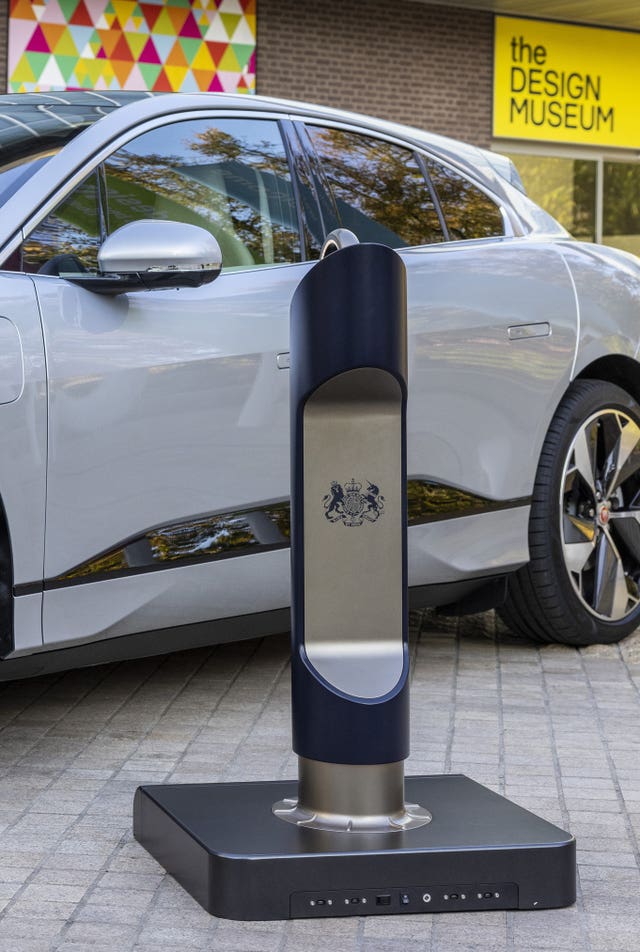
A new design to make electric vehicle (EV) charge-points “instantly recognisable” has been revealed.
Transport Secretary Grant Shapps said the design “could become as iconic as the Great British postbox or black cab”.
Consultancy firm PA Consulting, which created the design in partnership with the Royal College of Art, said it has “an instantly recognisable circular handle”, while its materials, size and black colour “help it to blend into the UK’s diverse surroundings, whilst remaining visible for EV drivers”.
Mr Shapps described its unveiling at the Cop26 climate summit in Glasgow as “a crucial step”.
Introducing Britain’s latest iconic design 🚗⚡️
Designed in collaboration between the @RCA and @PA_Consulting this new #EV charger will be seen across the country, ensuring we stay on track to become a global leader in #ZeroEmission motoring. https://t.co/cS5QuCG77d#COP26 pic.twitter.com/6REp4kq0Xx
— Department for Transport (@transportgovuk) November 10, 2021
He said it will “raise awareness of the electric vehicle programme (and) help millions more drivers make the switch to cleaner and greener cars”.
The UK is “on track to become a global leader in zero-emission motoring,” he added.
The Department for Transport, which commissioned the project, said it will “provide greater choice to industry and local government, as well as raise awareness and generate excitement around electric vehicles”.
A series of announcements on low carbon transport are being made on “transport day” at Cop26.
The Government has said new heavy goods vehicles (HGVs) sold in the UK will need to be zero emissions by 2040.
The phase-out will begin with a requirement for new trucks of 26 tonnes and under being net zero by 2035.
This is on top of the ban on the sale of new petrol and diesel cars from 2030.

Exemptions to the phase out dates will be considered for specialist vehicles, such as those for the military or emergency services, and for small manufacturers who need more time to adapt.
Logistics UK, which represents logistics businesses, welcomed the announcement as providing “much-needed certainty” for the industry, but warned the deadlines were achievable only with Government support.
Transport day will see the launch of a working group of ministers from 24 countries and industry leaders, including representatives of GM, Ford, Mercedes, and Volvo commit to 100% zero emission new car and van sales by 2040.
Elsewhere, a number of emerging economies including India, Ghana, Kenya, Paraguay, Rwanda and Turkey, will announce plans to shift towards EVs.
It will also see the launch of the Zero Emission Vehicle Transition Council (ZEVTC), a network of 30 countries agreeing to work together to make zero emissions vehicles the new normal.
Other announcements include 220 million dollars in funding coordinated by the World Bank to support the decarbonisation of road transport in the global south.
Nineteen countries unveiled plans for “green shipping corridors” – ports equipped with the necessary infrastructure to facilitate the shift to zero emissions vessels.
And 14 states, collectively making up for more than 40% of global aviation emissions, have put their names to a commitment to a decarbonisation target under a new International Aviation Climate Ambition Coalition, the DfT said.


Comments: Our rules
We want our comments to be a lively and valuable part of our community - a place where readers can debate and engage with the most important local issues. The ability to comment on our stories is a privilege, not a right, however, and that privilege may be withdrawn if it is abused or misused.
Please report any comments that break our rules.
Read the rules here